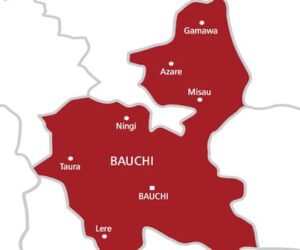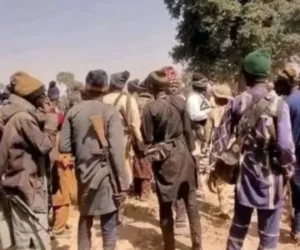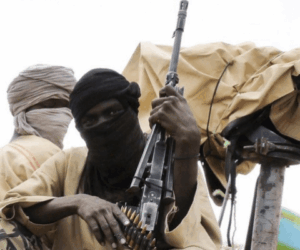From Fred Ezeh, Abuja
The Commissioner of Police Federal Capital Territory (FCT), Ajao Adewale yesterday said that the rising interest of some people in banditry activities in some states was because of the huge financial resources they make from illegal mining.
The CP stated that Sokoto, Zamfara, Niger, Nasarawa, Kogi, Kaduna, Kwara, and Osun states are witnessing security challenges because of different interests in their mineral resources.
At a media parley on sustaining the fight against illegal mining with members of the FCT chapter of the Nigeria Union of Journalists (NUJ), Abuja , the CP made reference to a report which indicated that some powerful Nigerians are behind illegal mining and funding of insecurity.
He stated that the Minister of Solid Minerals Development, Dele Alake, had also confirmed that these set of “powerful Nigerians” are the primary drivers of illegal mining, but they use foreigners merely as fronts, insisting that banditry and terrorism are often funded and facilitated by well-connected individuals, not grassroots artisanal miners.
In FCT, the CP noted that there has been reports of illegal mining activities in communities in Gwagwalada, Asokoro, Gaube, Kuje and in Katampe Extension, with a combined total of 72 suspects arrested by the NSCDC, Police and EFCC between 2023 and 2024.
He assured that the Minister, FCT, Nyesom Wike, is keen on combatting the menace, adding that he has ordered a comprehensive clampdown on illegal mining operations within the FCT.
The National President, Miners Association of Nigeria, Dele Ayanleke, in his submissions, redefined illegal mining, insisting that the people that are often called illegal miners are actually not illegal miners.
He said that illegal mining is the unauthorized extraction of minerals such as gold, lithium, tin, and sand without the necessary permits, licenses, or compliance with environmental and safety regulations, and it often occurs when individuals or groups take minerals outside the law, often ignoring environmental safeguards, labor standards, and social responsibilities.
He stated that illegal mining is a serious issue in Nigeria that had affected both the economy and the environment, stressing that the fight against it requires continuous effort, and that the media plays a critical role in sustaining the battle by informing the public, influencing policy, and mobilizing communities.
“The media is central to this sustained effort. By consistently reporting, educating, and advocating, it keeps illegal mining in public discourse and ensures accountability at all levels. The media must be well acquainted with the whole gamut of mining, its laws, regulations and operations.
“By this, the media will empower itself to do a balanced reporting of the sector, including all forms of illegality around the sector. Gone are the days when media organizations designate just any staff to cover the sector. The media serves as a vital tool in educating the public about illegal mining, its implications, and the importance of adhering to legal mining practices. It addresses several key areas.
“Sustaining the fight against illegal mining in Nigeria requires persistent attention, action, and public engagement. Illegal mining is not only an economic issue but also major environmental and social challenges, causing deforestation, water pollution, soil degradation, and loss of lives.
“The media is a critical partner in this fight. Through awareness campaigns, investigative reporting, community mobilization, and advocacy, it ensures that efforts to combat illegal mining are continuous, coordinated, and effective. By keeping illegal mining in public discourse, pressuring authorities, and educating communities, the media strengthens enforcement, encourages ethical practices, and helps Nigeria protect its mineral resources for sustainable development.”
The Commandant, Mining Marshal, Assistant Commandant NSCDC, Attah John Onoja, highlighted the dangerous effects of illegal mining and how such illegal activities have resulted in economic sabotage
He solicited the support of the media in fighting the menace by ensuring a balanced report when it comes to the activities of illegal miners.
The NUJ FCT Chairman, Grace Ike, in her welcome remarks, promised that the NUJ FCT would continue to champion, amplify the voices of affected communities, ensuring that their stories and struggles are heard nationwide because empowering citizens with information gives them the tools to demand better regulatory oversight and environmental protections.
“It fosters a culture of transparency and heightens public awareness, which are essential to curbing illegal mining activities. In an era of digital technology and social media, the media industry has even greater reach and influence. We must leverage these platforms responsibly to disseminate vital information, debunk misinformation, and encourage a national conversation on sustainable mining practices.
“Partnerships with environmental experts, civil society, law enforcement, and government agencies can enhance the depth and effectiveness of our coverage. As journalists, we also have an ethical obligation to report without bias, sensationalism, or undue influence.
“Our credibility and integrity are critical to maintaining public trust. So, let us continue to uphold the highest standards of professionalism in our coverage of illegal mining and related issues,” she said.








